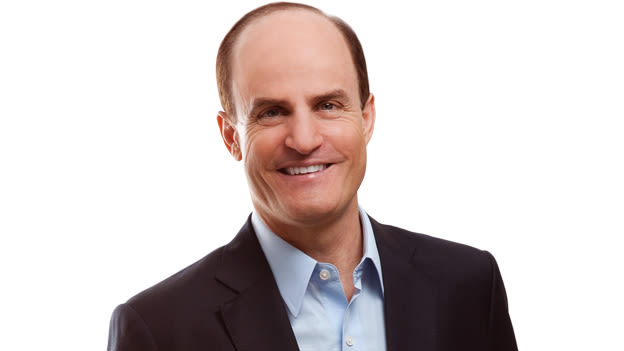Importance of building a service culture

What is your agenda for SHRM India’s Annual Conference 2014 conference? What are the key messages you are planning to share?
The key messages that I plan to share are directly connected and aligned with the key themes of the conference: Connect, Inspire and Grow. HR, as a function, has a fundamental responsibility to help people inside an organization connect with service, connect with each other to make service improvement possible and help the organization connect with the customer base by providing better service. HR also has a responsibility to inspire people about service. Service can be seen as a necessary factor, a hygiene factor if you will, something that you must do to avoid complaints to simply keep the customers you have got. But, that approach is not good enough for today’s fast moving world. We need people to be uplifted, to be motivated, to be inspired about providing great service to other people. HR can have a big impact in making that happen in many ways such as identifying the right people, setting the right cultural context, making sure the right people are promoted. The third topic is Grow. No organization is going to grow successfully and sustainably in the future without providing great service. No organization is going to grow by attracting and keeping the best possible talent unless they develop a culture of service inside the organization that employees themselves find to be satisfying, motivating and uplifting. HR’s responsibility is to connect, inspire and grow and that’s my primary agenda for the keynote speech I will be giving at the SHRM India Annual Conference in September.
How does service become the ultimate competitive and sustainable advantage? How can the company empower employees to uplift their service?
The answer to the first part of the question is out there in what’s happening in the world today. Every major company is commoditizing. Products are copied more quickly and effectively than ever before. Services can be matched practically overnight, often at a lower price; competition is coming from all over the world. Between globalization and commoditization, it is difficult to earn a sustainable advantage simply by having a better product.
The answer to the second part of the question is education and not training. Many companies spend a lot of time and money in customer service training, teaching people how to use the script, how to follow the procedure, what’s in the checklist. Training really works when something needs to be done exactly the same way over and over again however in serving customers, we need employees and team members who have flexibility, who have the ability to think, understand what’s called for in a situation and decide for themselves what is the right action to take, rather than simply following a scripted formula. That’s the difference between educating someone to think of service rather than training them on exactly what to do. You inspire, uplift and empower the employees by educating them.
What are the steps involved in building a service culture? What is the role of HR professionals in driving this culture in an organization?
The first step is to establish a strong definition of what we mean by service. At Up! Your Service, service is taking action to create value for someone else. When you look at service, the most important aspect is not the action that you take but the ability to focus on and understand someone else. They can be a customer or a colleague, whether they are at your level or a different level, whether they are in your department or a completely different company. Who is the one that needs you to do something that they will value? That’s the most important first step in building the service culture. Everyone understands that every row in an organization is a service row. That makes the role of HR enormously important. HR has its fingers on the ability to recruit new talent, assess the talent they have, promote the ones that deserve it, provide an orientation to the people who are joining the team, develop, coach and mentor people, encourage and inspire people. It is HR’s role to keep service at the top of the agenda. Every leader in the organization must be committed to doing that. HR has a particular ability to empower because of the role they play in bringing in, recruiting and developing the right people in the organization.
In your opinion, what are the key differences in Indian service culture compared to global practices?
The answer to this question is volume – the number of people in India both workers and customers has skewed the way people think about service. With such an enormous number of people, there is always a sense that someone else is coming, someone else could be hired if this person leaves etc. So rather than cultivating value in those that you have—attracting, keeping and growing your best employees—I notice that in India there tends to be an ease or an acceptance that people come and go. But, the danger with that is people will be coming and going rather than retaining the best people you have as colleagues and customers.
You have worked in many countries. Do different cultures have different service standards, and different expectations? Have you found some cultures better at service than others?
Different countries do have different service standards and expectations. For example, Americans tend to be gregarious, outgoing and loud, whereas the English tend to be a little more reserved, conservative and sophisticated. These are different standards that fit with different people expectations. The answer to the second part of the question is not in the standards and expectations of the country but in the country’s willingness to be sensitive and curious about what is appreciated by the other people that they serve. It’s a question of whether or not Indian service providers are more curious about their customers, more open to learning about their customers, sensitive to their customers or colleagues. Are they willing to adapt, change and adjust the service you are going to provide, the action that you take is something the customer truly appreciates or values. When you look at service that way, India has a tremendous service potential for the future as Indian culture cherishes education and we need to bring powerful service education into the companies, the labour force & the government. The second aspect that helps is that Indians are innately curious, they want to know, want to understand and learn more. If we can turn the passion and the curiosity in understanding the people that we serve, our customers, colleagues, suppliers and each other; we will have the fundamental ingredients for outstanding service success.
For over two decades UP! Your Service Founder and Chairman Ron Kaufman has helped companies on every continent build a culture of uplifting service that delivers real business results year after year. Making transformation his mission, Ron is one of the world’s most sought-after educators, consultants, thought-leaders and customer service speakers on the topic of achieving superior service.










